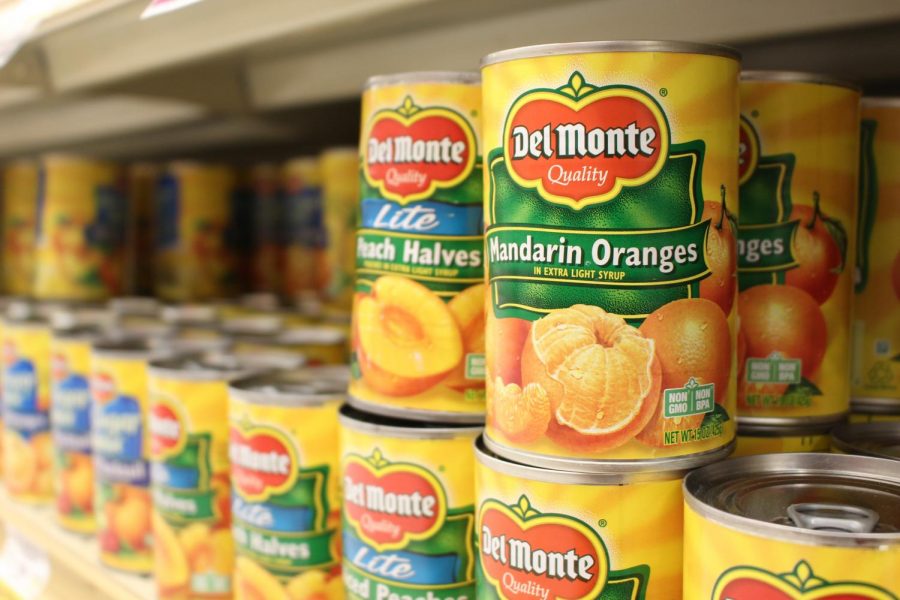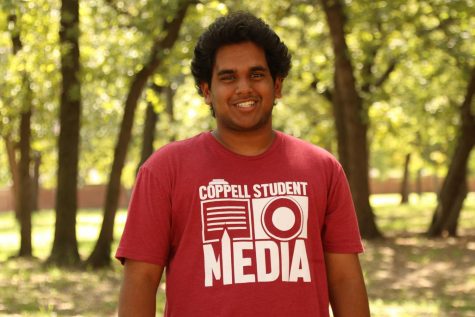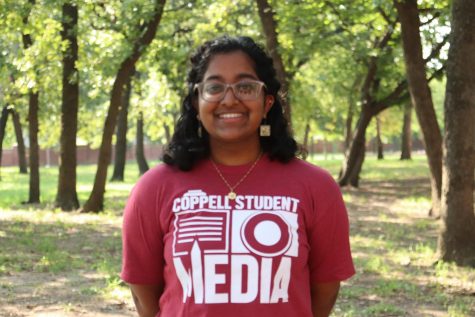UN’s Sustainable Development Goals pushing astronomy, ESS to think locally
Canned food items are required for entry to the movie night hosted by the Coppell High School Earth and space science sixth period class on Friday in the CHS parking lot. This year, each astronomy and earth and space class at CHS organized a community project focused on the United Nations’ Sustainable Development Goals.
May 12, 2021
If you read the mission statement for the Coppell ISD science program, you find that it focuses on preparing students to become both scientifically literate and socially responsible people. Coppell High School astronomy and Earth and Space Science teacher Angela Barnes exemplifies this principle in both classes’ year-long Sustainable Development Goals (SDGs) project.
Barnes organizes her classwork so students can find direct connections between events, the numbers behind climate change and their own lives, regardless of the information’s direct connections to Astronomy. After teaching seniors for more than a decade, Barnes felt that it was imperative for her students to leave with information that will be useful to them when they graduate.
“[Sustainability issues] are something that everyone really should be thinking about, so when I allow my students to look at [the goals] and choose what they care about the most, it’s really cool to see them take on the responsibility of raising awareness and making a positive change in the community,” Barnes said. “I love [watching it].”
Each year, students usually choose one SDG and create a presentation detailing the logistics behind solving the goal, why solving the problem is important and who and what location are affected most by the issue.
Halfway through the 2020-21 school year, Barnes chose to restructure the project to both continue its community impact while not straining students working independently. Each class period is now focusing on one SDG. The project was restructured to encourage students to think locally about how the issues highlighted in SDGs affect the Coppell community and Greater Dallas.
Previously, students often turned to researching hunger, poverty, education and food/water shortage issues in more economically disadvantaged communities across the globe. But the pandemic highlighted that these issues are more present in local communities than students may have thought. As a result, each class organized a community service project, ranging from food drives and school supply drives to trash cleanups in Coppell.
“[Doing things in our community] shows that we aren’t just talking about the environment but actually doing stuff to fix the problems we see,” CHS sophomore Preston Taylor said. “In classes beforehand, we’d just talk. No one would do anything about it and we’d just learn about it to get the grade, but I liked actually doing something about it because we took it more seriously and got something done.”
Taylor’s seventh period astronomy class selected Goal 15, Life on Land, as its goal and organized a trash cleanup at CHS on April 25. For Taylor, the clean up and project as a whole taught him an important lesson about waste.
“I’ve taken things that we’ve learned [during this project] like different ways to treat water usage in your house and how it helps the environment into my daily life, and if I see any trash around at parks, then I am going to go out of my way to pick it up and throw it away just so I am helping out the environment,” Taylor said.
This impact can not only be seen on the students’ lives but also affects the ways that teachers’ families approach waste. CISD digital learning coach DianaLyn Perkins, who used to be a science teacher at Coppell Middle School East and did her own version of Barnes’ project, was first introduced to the project by CMS East science teacher Jodie Deinhammer and saw the benefits that teaching about sustainability has on children.
Since then, the work done in Perkins’ classroom reflected heavily on her husband, Daren, and eldest daughter, Shauntae. Mr. Perkins had never recycled a can until Shauntae came home from school excited about it. Since then, Mr. Perkins recycles about everything he can, according to Mrs. Perkins.
“[My generation] hasn’t done a great job of being sustainable, so the kids really need to, and the really cool thing about seeing a kid get excited about something like this is they take it, they get their families excited and suddenly you start seeing change happen,” Mrs. Perkins said. “If you can get a kid excited about something like that, then real change is going to happen because there is more power behind exciting kids than there is behind exciting adults.”
Follow Meer (@meer_mahfuz) and @CHSCampusNews on Twitter.











